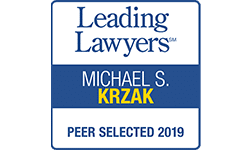Choosing the right nursing home for your loved one can be an overwhelming decision. Even if you pick the top-rated facility, there’s the chance your loved one could receive inadequate or negligent care. If you believe that’s happened, a Plainfield nursing home abuse lawyer can help.
Elder abuse is widespread; however, it often goes unreported because senior citizens may be embarrassed to discuss what they’ve been through or may not have the mental capacity to express what’s happened. That’s why Schweickert Ganassin Krzak Rundio, LLP helps victims of nursing home abuse. We want to give a voice to those who are unable to speak up for themselves.
Long-Term Care Facilities in Plainfield
While there is technically only one nursing home within the village of Plainfield, there are numerous in the surrounding areas. According to Medicare’s Nursing Home Compare tool, the Lakewood Nursing Home & Rehabilitation Center in Plainfield has a below-average rating overall, with below-average ratings for health inspections and staffing an average rating for quality measures. While this doesn’t necessarily mean your loved one will be abused or neglected at this facility, it’s possible they may not receive the care they need to live a high-quality life.
If you have questions about the care your loved one is receiving in their facility, don’t hesitate to ask. In the event you suspect abuse or neglect is occurring, it’s important to understand your loved one’s rights as a nursing home resident in the state of Illinois.
Illinois Nursing Home Residents’ Rights
Long-term care facility residents in Illinois are guaranteed certain privileges according to the rights and protections established under state and federal law. According to the Illinois Department on Aging, your loved one has the right to:
- Safety and good care. Nursing homes have to provide services to keep residents’ physical and mental health and a sense of satisfaction as high as possible. In addition to that, residents must not be abused by anyone—physically, verbally, mentally, financially, or sexually.
- Participate in their own care. Facilities have to provide written care plans to residents. In addition to that, facilities have to make reasonable arrangements to meet residents’ needs. Every resident has the right to all of the information about their medical condition and treatment plans, as well as the ability to choose their own doctor.
- Privacy. All medical and personal care should be private. This means that staff have to knock before entering a room, and the facility is not allowed to give out information without permission. Residents have the right to private visits, as well as the right to make and receive phone calls in private. In the event a married couple enters into a nursing home, they have the right to share a room.
- Money management. Nursing home residents have the right to manage their own money. They are allowed to access their financial record at any time, and the facility is required to provide itemized statements at least once every three months. A facility cannot manage a resident’s money without express permission.
- Contract information. Residents must be given a contract that states what services are provided and how much they cost. Only a resident or a court-appointed legal guardian can sign agreements.
- Medicaid and Medicare information. All residents can apply for Medicaid or Medicare services. The facility is required to provide information regarding the application process. If Medicaid is available, the facility cannot make a resident pay for anything that Medicaid covers.
- Stay in their facility. Residents have the right to keep living in their facilities. A nursing home can only force a resident to leave if they have not paid their bill, they are a danger to themselves or others, their medical needs cannot be met, or the facility closes. Facilities are required to provide written notice when they are requesting residents leave.
In the event a resident’s rights are not abided by in their facility, the Department on Aging recommends speaking with the staff, participating in the Resident Council, and filing a grievance with the Central Complaint Registry. It’s also important to speak with a Plainfield nursing home abuse attorney to determine what steps to take next.
How to Recognize the Signs of Elder Abuse and Neglect
While the terms abuse and neglect are sometimes used interchangeably, they are two different concepts. Abuse is intentional and can be physical, emotional, mental, sexual, or financial in nature. Perpetrators of abuse can be staff members or other residents. Acts of abuse include striking a resident, making verbal threats, and stealing possessions or money.
Neglect, on the other hand, refers to the failure to provide the necessary care. Neglect happens through passive actions like failing to administer medication, mixing up medications, failing to check on residents regularly, or inadequately cleaning or sanitizing areas. It can also include the failure to appropriate supervise or provide fall-protection to certain at-risk residents. While the effects of abuse are often immediate, it can take time for a resident and their family to notice neglect is occurring.
Physical and mental abuse can take their toll on nursing home residents in different ways. You may notice new injuries, like bruises, lacerations, or restraint markings. Your loved one may mention their physical pain and discomfort, or you may only notice the injuries because of the way they are acting. With mental abuse, your loved one may seem withdrawn, uninterested in previous hobbies, depressed, anxious, or fearful.
Anytime you believe your loved one is uncomfortable around a staff member, it’s important to inquire as to why. If they’re being mistreated, they may be hesitant to come forward for fear of retaliation. They need to understand that you can help them and remove them from the situation if necessary.
If a nursing home resident is being neglected, they may experience unusual weight loss, malnutrition, or dehydration. Bed sores often develop if a resident is left immobile in bed or in a wheelchair for extended periods of time. Neglectful nursing homes often fail to provide sanitary living conditions, which could mean the facility is dirty or residents do not have access to clean bedding or clothes.
You know your loved one best. So, if you notice they are acting differently or you see unexplained injuries, you may suspect they are being mistreated. You can ensure their recovery and hold the negligent facility accountable with the help of a Plainfield lawyer.
Seek Legal Help From Schweickert Ganassin Krzak Rundio, LLP
The moment you suspect your loved one is being mistreated in their nursing home facility, report the matter to management and contact the proper authorities. If your loved one needs medical attention or you believe their life is in danger, you can remove them from the facility and ensure they receive the care they need.
Once your loved one is safe, you’ll want to get in touch with a Plainfield nursing home abuse lawyer from Schweickert Ganassin Krzak Rundio, LLP. We can investigate the alleged abuse and determine if there are grounds for legal action.
In the event you choose to pursue a personal injury claim against the facility or an employee, we’ll be by your side the entire time and help you build a claim that proves your loved one was wronged. To learn more about the filing process or to get started with a no-obligation, free consultation, contact us today.








